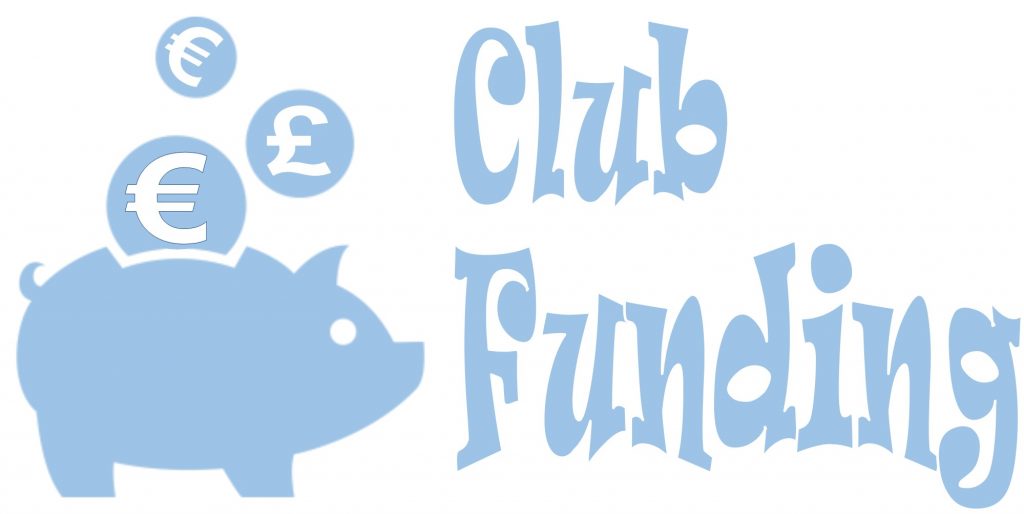
All clubs require funding to remain in operation, whether it is to pay, day to day running costs, participation in events, education and courses, the provision of boats & equipment or provision or upkeep of premises, clubs need to pay bills.
Having a realistic and clear understanding of the likely sustainable income your club can generate is a vital ingredient of good financial management.
A great way of ensuring your income is sustainable is to source your funding from a variety of sources, including:
- Membership fees
- Sponsorship
- Fundraising
- Commercial activities
- Grant funding
Me mbership Fees
mbership Fees
Exploring Membership options
Many sports clubs rely heavily on the income generated from membership fees, so it’s important to get these set at the right price. Ideally your membership fees should cover the day to day financial running costs of the club. Additional income generated from other sources can then be used to improve and develop the club and to build up a rainy day fund to cover unexpected events. Below are some questions to ask yourself when thinking about your sports club’s membership fees:
Have you researched to see if your subscriptions are competitive with other local clubs and activities in the area and with other rowing clubs in your region?
- Do your fees reflect the value of what your club offers? For example, the rowing opportunities, coaching, facilities, social activities, etc.?
- Is there scope to increase your fees, or should they be reduced to attract more members?
Remember, raising membership fees can be an emotive issue so make sure your members know exactly what they are getting for their money and also let them know how your club is funded overall. Often a rise in membership fees is more acceptable if members are better informed about the financial position of the club.
Ideally, your membership fees will be set at a price that helps you to cover the costs associated with your operations. However, being accessible and inclusive about the ways people can be part of your club is equally important. This might mean considering different membership options and being more flexible, so that you can welcome people from as many backgrounds as possible. Here, we are some of the options that may consider offering.
Different Membership offers
There are a few different membership options that can help you to cater for all interested members of your local community. In addition to a full membership fee offer, you may also want to consider introducing one or more of the following:
Subsidised Membership
For people on low incomes or from low income families, paying full price membership might not be an affordable option. Can you offer a subsidised (reduced price) membership option so that these groups are able to participate?
Pay as You Go / Flexible Membership
Offering flexible options like ‘pay monthly’ and ‘pay as you go’ can be really helpful for some people. Having a flexible membership offer can make your organisation more accessible to people who cannot afford a one-off yearly cost or those who cannot commit full term.
Families Membership
If you’re a family friendly organisation, what about offering a family or group membership option? This could help you boost your membership numbers whilst also making your organisation even more welcoming and inclusive. You could also do the same for couples.
Other Offers & Discounts
You may also consider offering specific discounts to help encourage more people to join your organisation. These could include:
- A half season (or similar) offer.
- A discount for older adults.
- A discount for people who can pay early.
- Student discount.
- Sibling discount – similar idea to a family membership, for example discounting membership for each child from the same household that joins after the first.
- Volunteer Discounts – this may help with volunteer recruitment and retention from within your membership.
- Bursaries and support funds – offer a confidential application process for individuals facing financial hardship to access free membership, training, kit or equipment.
If you can offer any of the above options or discounts, you may want to promote this to your local community. Letting people know that you are making the effort to be financially accessible could help to encourage more to get involved.
What is the right choice for your Club and Members?
There are different ways that you may be able to make your club more financially accessible to your community, but how do you choose which works best for you? You might want to consider following the steps below to help you identify the best choice:
- Talk to your existing participants about the membership offers already available and see what they think about introducing new options.
- Consult with groups of people in your local community to find out what membership offers would make your club more accessible and appealing to them.
- Review the membership offers available from similar organisations in your area and consider what you can do to make sure you have a competitive offer.
- Review your current financial position to help you assess what kind of changes you can introduce and when.
Above all, it is important to make sure that whatever your membership options and fees are, the price is fair and reflective of what you are offering to people. This includes everything from the programme of activities that you offer to the level of coaching available and the social activities you provide.
Collecting membership fees – things to think about
Once you’ve considered the right offer for your club, your people and your community, you might want to think about how you’re going to collect fees. The following are a few things worth considering:
Agreeing payment terms upon joining: where possible, make sure people agree to the payment terms associated with their membership and any offer/discount they are eligible for when they first join. Integrating this into the joining process can help you to ensure your members are informed right from the beginning.
- Encourage bank transfers: where possible, try to avoid collecting fees in cash. Although this might seem easier, it can be time consuming to keep track of who has paid, plus someone will need to take responsibility for lodging the cash in to the club’s account. Instead, think about encouraging your members to use bank transfers to pay fees.
- It is however important to recognise that some people may struggle with this, so be open to exploring other methods with these individuals.
- Use online banking: If you don’t already, consider using online banking. This helps you to more easily keep track of your club’s finances. It can also be more convenient and less time-consuming.
- Consider introducing a Direct Debit function: if you are a larger club, using a Direct Debit payment option might be valuable. However, this can be a lengthy and involved process which includes securing sponsorship from your bank, so make sure you explore what is involved before committing to this.
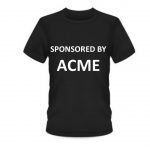 Sponsorship
Sponsorship
Sponsorship can be a great means of generating income and form a partnership with a local business or organisation. Sponsorship isn’t free money however. It requires time and resources to be successful and it should be seen as a two way streak, mutually beneficial to both your club and the sponsor. Think about the different types of sponsorship a company could offer your club including:
Sponsorship fee such as sponsoring the club kit, boats or oars, etc.
- Provision of resources e.g. volunteers to help out at the club for the day or at an event
- Provision of products or services e.g. an electrical company providing energy efficient lighting or a local builder providing some facility maintenance work.
What can you offer sponsors?
With a little creativity, as a sports club you can open up a whole new range of sponsorship targets. The following are a few examples of what you could offer a sponsor:
- Their logos printed on your Premises, Kit, Oars, Boats, Gazebos, banners, etc.
- Their logo included on your website, email footers, letter heads
- Their company name mentioned in any events, team publicity and end of season reports.
- Hold an event under the name of the sponsor, for example “The Car Sales Co. Cup”
- Hold an event at your sponsor or partner’s venue, or allow them to hold an event at your venue. For example, a ‘Family Fun Day’ held at your club house during your off season
What can sponsors offer you?
- Financial support.
- Club kit or equipment, which may have their logo or name on it.
- Discounts e.g. money off equipment or supplies ordered from their business, a reduced admission price to events, or a discount when hiring specific services or facilities.
- Facilities or a venue to host events.
 Fundraising
Fundraising
Raising money from fundraising and social events can be a great source of income for any club as well being an excellent way to bring your members together in a social setting. By involving members other than the committee to organise events you can also give them the opportunity to feel they are doing their bit to support the club. The list of events you could run is endless and often the more imaginative the better.
Commercial activities
Commercial activities, for example selling products (e.g. kit or refreshments) or services (e.g. facility hire) can be a great way to generate income from both inside and outside of your club to support it financially.
Look within your club
Think about what your rowers, parents and social members want. If you’re not sure, ask them. How can you get them to willingly spend more money at your club? For example, could you encourage more people to visit by making the club more family friendly, or can you encourage parents to stay throughout kids’ sessions by offering free wifi and selling refreshments?
Look to your local community
Outside of your club, think about what else is in your community. What else is on offer that you can provide as good or even better than what is already out there? What doesn’t your community have that it needs? Can your club meet this need? Also, think about whether you can work in partnership with a local organisation to send potential customers to you (and vice versa).
Look at your facilities
If your club has its own facility, then consider whether you can generate additional income from these by hiring them out to the local community e.g. businesses for meetings or conferences, families for birthday parties and social events or community groups. With more people using your facilities, promotion and awareness of your club will also increase. If you are generating commercial income, depending upon the activities you may need to think about a number of different areas including tax, club structure and insurance.
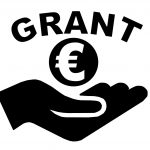 Grant funding
Grant funding
If your club needs financial support for something more than day to day expenses, for example help to improve your facilities, buy equipment to make your sport more accessible or to develop a new sports programme in your local area, then grant funding may be available. There are a number of different national and local funding programmes that your club may be able to access. The links below give you a great place to find funds that may be able to support your sports club including:
Grant Funding Tips:
Tip 1: Start planning your funding strategy by outlining your priorities
The words ‘funding strategy’ can sound daunting, conjuring up images of 100-page documents and a lot of mind-sapping work. But it certainly doesn’t need to be that complicated.
Start by building a clear picture of exactly what you want funding for. What are your priorities? Are there a number of different items you want funding for? Without starting here, you could end up wasting time and money on unnecessary elements. This also helps you to filter out different types of applications.
The next thing to think about is who will be undertaking this work. Who will complete the funding applications, and ensure the applications are appropriate to your club?
Tip 2: Remember that funding is a team effort
Organising funding ideally won’t be down to one person; it relies on the support of many stakeholders within your club committee. That includes your Chair, your Secretary and your Treasurer.
If it’s not feasible for your club to work as a team on funding, you need to ensure someone with knowledge and expertise in the area is undertaking the work. This could be a person in a Development Officer role, who has time to fill out the information forms.
Tip 3: Consider bringing in new team members to aid your funding efforts
If you don’t have anyone within your committee with the expertise and time to complete the funding applications, reach out to your membership – or even outside of the club. You may want to, for example, ask a friendly consultant to help your club.
Bringing in somebody with the necessary skillsets will save you a lot of time, and also increase your chances of a successful application for funding.
Tip 4: Demonstrate the wider benefits of the Sport of Rowing in your application
If you are applying to a general funding pot that is open to community groups and charities, then you need to demonstrate the wider benefits of rowing.
That includes factors such as teamwork, social cohesion, improving mental wellbeing, reducing isolation, and community engagement. Rowing provides us with all of these positives, and it’s the reason why so many of us love rowing.
Explore what the key outcomes are for applications, and ensure you explain how sport in particular, and rowing and your project, can achieve these goals.
Tip 5: Don’t be afraid to ask for help
If you’re unsure of anything in the application, and you’ve read the guidance and FAQs, then contact the organisation you’re applying to. Explain that you’re thinking of applying, and check that your club and project matches their criteria. You may gain some extra insight or information this way too, which can boost your application.
Also consider using data from Local Sports Partnerships or your Local Authority around the demographic make up of your area. You can do this by accessing information on their websites, or by simply getting in touch.
For example:
- What is the ethnicity breakdown of your area?
- What size is the population?
- Are there any issues rife in your area, such as below average mental health?
You can use this type of information in your application to outline why your project is so important.
So what should your club have in place to ensure that you are ‘ready to go’ when it comes to submitting an application for funding?
- You should be pre-registered on the Sports Capital Programme (OSCAR) on-line system.
- Club Constitution
- Land ownership
- Land Registry Documents
- Deeds of Trust
- Land Lease
- Lease Agreement
- Money in the Bank / Approved borrowing
- Planning Permission
- Club Development Plan
- Community Consultation
- Demonstration of NEED
Do you have a plan?
Clubs will need to have a clear plan for how the funding will be used highlighting:
- Why it is needed; i.e. current club situation and needs, priorities for GAA, needs of the local community (with evidence)
- Who it is for and who will deliver it (including partners)
- How the funding will be used, how the project will be delivered, how much funding is needed in total, and how much funding is being requested
- What outcomes will be delivered (tailored to the funder’s priorities)
- When the project will start and finish
- Where activities will take place
Know your Statistics
Clubs should also have a good understanding of their membership for example:
- Number of members
- Weekly/ Daily usage
- Breakdown of Membership by age, gender, ethnicity and disability
Making the Sporting Case
- Does your project contribute to the funding body’s priorities?
- Does your project contribute to your Local Sports Strategy?
Clubs can strengthen an application by using this information and stating that their project will contribute to achieving these goals
Making the Community Case
Rowing Clubs play a significant role in their communities and can have an impact on:
- Crime and anti-social behaviour
- Social disadvantage and deprivation
- Healthy lifestyles (including obesity and healthy eating)
- Educational attainment and attendance
Many funders are not interested in how many Championships your club has won, and are more likely to want to know how your club contributes to your Community.
Making the case for Coastal Rowing
- Rowing Clubs are community assets, providing an environment where members can feel a sense of belonging and are valued members of your club and crews.
- Coastal Rowing educates people in healthy lifestyles by encouraging healthy eating, weight management, good hydration, and discouraging bad habits like drinking, smoking, drugtaking and anti social behaviour.
- Coastal Rowing helps people develop new skills and abilities, bringing self-confidence and self-worth.
- Coastal Rowing is a physically demanding sport, bringing enormous fitness and health benefits such as increasing strength, developing anaerobic endurance, and improving cardiovascular function, and decreasing the risk of obesity and other life-limiting conditions.
- Coastal Rowing relies on countless hours of voluntary commitment from coaches and club officials who are enormous assets to their communities; clubs offer opportunities for people to give something back to their sport and their community
Gathering Support
Ways to canvass opinion and gather support include:
- Community consultation forums (could be linked to club open days)
- Questionnaires to local residents
- Online questionnaires / surveys
- Consultation with club members and parents
- A simple form for people to sign to indicate their support
Building Partnerships
Benefits of partnership working:
- Pooling of resources
- Reaching a new audience of potential members
- Increased influence / lobbying via a ‘joint voice’
- Other opportunities can be created and accessed via new networks and ‘opening doors’
Letters of support from partners and members of your community can add considerable strength to your application and are essential for larger funding bids.
Fundraising
It can be easier to access funding when your club is able to commit some of your own funds to your project, particularly in the case of larger funding applications. This shows that the club generates its own revenue and is not overly-dependent on grants and funding. This can give funders confidence that the club is sustainable and will continue to exist into the future, and that their funding can have a long-term impact.
Having a dedicated club fundraising committee can really help you to focus on and drive this vital area; perhaps a parent or group of parents could get involved?
State of Readiness Tips
- More and more funding programmes are time-limited: Clubs have to be ‘ready to pounce’ when the opportunities arise.
- The competition for funding is now so intense that clubs simply can’t afford to leave their applications until the last minute.
- Clubs that can show a ‘state of readiness’ tend to be more favourably treated by funders because they present a much more limited risk to those funders.
- Make sure your Deeds of Trust are in order.
- If they’re not, it takes time and support from a solicitor to sort them out.
- If you’re planning a major capital project you are going to need Planning Permission regardless of who’s funding it.
- So when you’re in a position to apply for Planning Permission, apply for it!
Funding Basics
- Don’t ever just apply for a grant because it’s there.
- Funders want to spend money but they don’t have a free hand to spend it willy-nilly.
- Being ‘worthy’ isn’t enough to secure funding:
- Projects must deliver the funder’s agenda.
- Funders aren’t stupid.
- They’ve seen it all before. You won’t pull the wool over their eyes.
- Match your Needs to their Wants.
- That of course means: Identifying your Needs and their Wants.
What are your Needs?
- What are you looking to achieve…
- Who do you do it for and where?
- How do you do it (governance; structures; processes; etc):
- What has worked well
- Your successes?
- Who is central to your delivery?
- Have you a plan (if not … why not!)?
- How does that plan fit with other plans (ie. Funders, Local Authorities, Sports Sector, Waterway Authorities)?
- Where does this project that you want them to fund fit into the overall plan?
What are their Wants?
- What are they here to do… and Why?
- Who do they do it for and where?
- How do they do it (governance; structures; processes; etc):
- What are they fond of?
- What do they give money for and what do they not fund?
- To Whom do they give money and
- How Much do they typically provide?
- What are their funding criteria?
- Are they value-driven in terms of how they spend their money?
- What are their timescales?
- Where does your project fit with all this?
Good Projects = Good Applications
Spell out in detail:
- Who’ll benefit;
- How Many;
- Where;
- When;
- and How…
and will verify all that!
- Specify the amount of money needed and why
- Highlight your own (and others’) inputs/added value
- Be clear about how the project will be managed and delivered
- Explain how performance will be monitored
- Show the funder how the project will deliver for them … and that the club can deliver the project as planned!
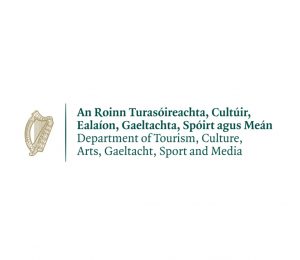
Sports Capital Programme Unit
https://www.sportscapitalprogramme.ie/
Sports Capital Programme
Department of Tourism, Culture, Arts, Gaeltacht, Sport and Media
New Road
Killarney
Co. Kerry
SportsCapitalProgrammes@tcagsm.gov.ie
Cork: 085 8583055
Kerry 085 8583211
Donegal 085 8768032
Dublin 085 8049667
Louth 085 8583102
Wicklow 085 8583088
Wexford 085 8583059
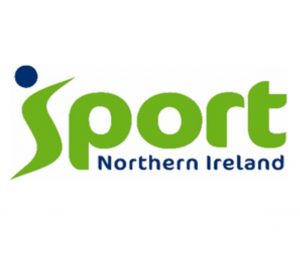
Sport NI – Funding Options
http://www.sportni.net/funding/our-funding-programmes/
Sport Northern Ireland,
House of Sport,
2a Upper Malone Road,
Belfast,
BT9 5LA
028 9038 1222
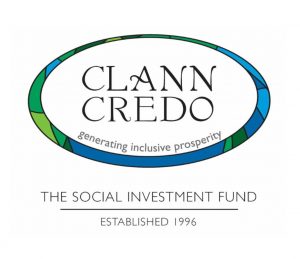
Clann Credo
Clann Credo,
Irish Social Finance Centre,
10 Grattan Crescent,
Inchicore,
Dublin 8,
D08 R240
01 400 2100
Wexford & Wicklow
086 309 8098
roisin@clanncredo.ie
Cork & Kerry
087 738 8391 or 086 042 9323
susan@clanncredo.ie or sarah@clanncredo.ie
Dublin & Louth
086 042 9403
tony@clanncredo.ie
Donegal
087 648 8390
tracey@clanncredo.ie
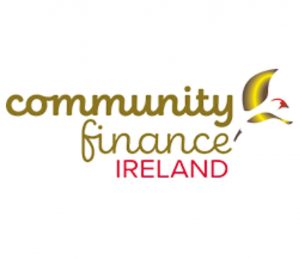
Community Finance Ireland
https://communityfinanceireland.com/
Community Finance Ireland
Unit 16,
Ardee Business Park,
Hale St,
Ardee,
Co. Louth.
041 6858637
Community Finance Ireland
13-19 Linenhall Street,
Belfast,
BT2 8AA
00442890315003
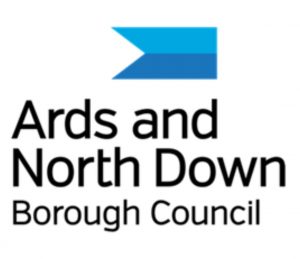
Ards & North Down Borough Council
https://www.ardsandnorthdown.gov.uk/resident/leisure-activities-and-centres/sports-development-1
Ards and North Down Borough Council
Town Hall
The Castle
Bangor
BT20 4BT
0300 013 3333
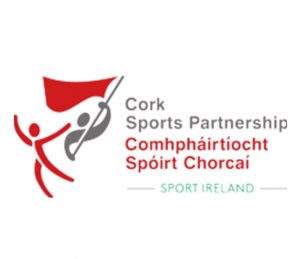
Cork Sports Partnership
Cork Sports Partnership,
Motor Tax Office,
Model Business Park,
Model Farm Road,
Cork
021 434 7096
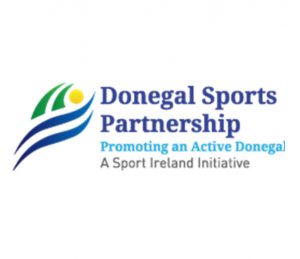
Donegal Sports Partnership
http://www.activedonegal.com/jobseekers/
Donegal Sports Partnership,
Office No. 7,
River Front House,
Pearse Road,
Letterkenny,
Co. Donegal
074 911 6078
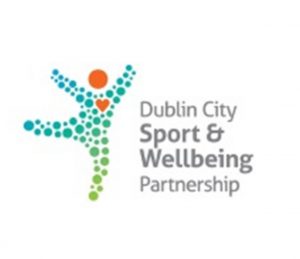
Dublin City Sport & Wellbeing Partnership
https://www.dublincity.ie/residential/sports-and-leisure/dublin-city-sport-wellbeing-partnership
Dublin City Sport & Wellbeing Partnership,
Sport & Recreation Services,
Dublin City Council,
Floor 4, 3 Palace Street,
Dublin 2
01 222 7870
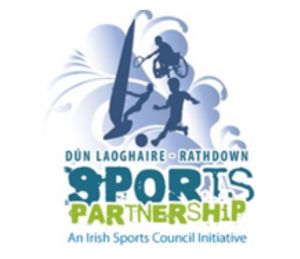
Dun Laoghaire – Rathdown Sports Partnership
http://www.dlrsportspartnership.ie/
Dun Laoghaire-Rathdown Local Sports Partnership,
Dun Laoghaire-Rathdown County Council,
County Hall,
Marine Road,
Dun Laoghaire
01 271 9502
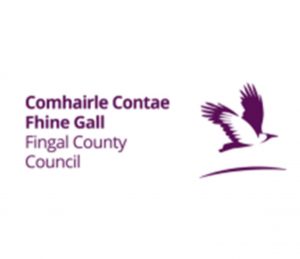
Fingal Sports Partnership
https://www.fingal.ie/council/service/community-sports-office
Fingal Sports Partnership,
Sports Office,
Fingal County Council,
Civic Offices,
Grove Road,
Blanchardstown,
Dublin 15
01 890 5107
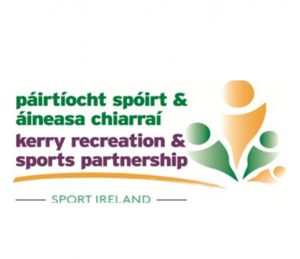
Kerry Recreation & Sports Partnership
http://www.kerryrecreationandsports.ie/
Kerry Recreation and Sports Partnership,
Kerry County Council,
County Buildings,
Tralee,
Co. Kerry
066 718 4776
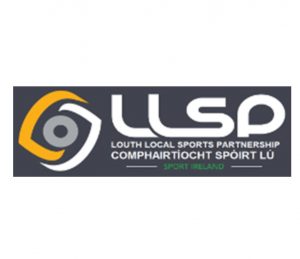
Louth Local Sports Partnership
Louth Sports Partnership,
Louth County Council,
Dundalk Sports Centre,
Tom Bellew Avenue,
Dundalk,
Co. Louth
042 932 4318
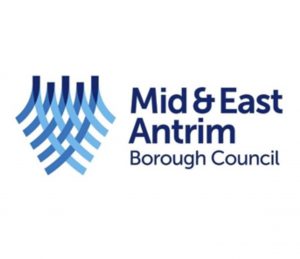
Mid & East Antrim Borough Council
https://www.midandeastantrim.gov.uk/resident/sport-and-leisure/
Mid and East Antrim Borough Council
1-29 Bridge Street
Ballymena
Co. Antrim
BT43 5EJ
0300 124 5000
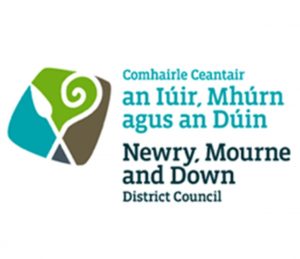
Newry, Mourne & Down District Council
https://www.newrymournedown.org/sports-development
Oifig Dhún Pádraig
Downpatrick Office
Downshire Civic Centre
Ardglass Road
BT30 6GQ
0330 137 4044
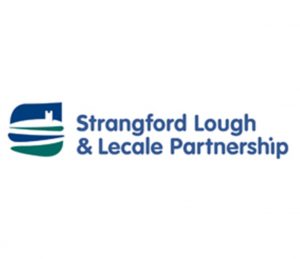
Strangford Lough & Lecale Partnership
https://www.strangfordlough.org/projects/coastal-rowing.html
Strangford Lough & Lecale Partnership,
Downshire Civic Centre,
Ardglass Road,
Downpatrick
BT30 6GQ
0330 137 4045
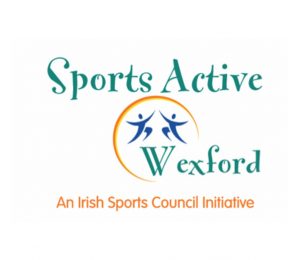
Sports Active Wexford
https://sportsactivewexford.ie/
Sports Active Wexford,
Community Development,
Wexford County Council,
County Hall,
Carricklawn,
Co. Wexford
053 919 6557
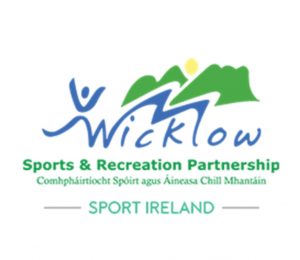
Wicklow Sports & Recreation Partnership
Wicklow Local Sports Partnership,
Wicklow County Council,
Whitegates,
Wicklow Town,
Co. Wicklow
0404 20100